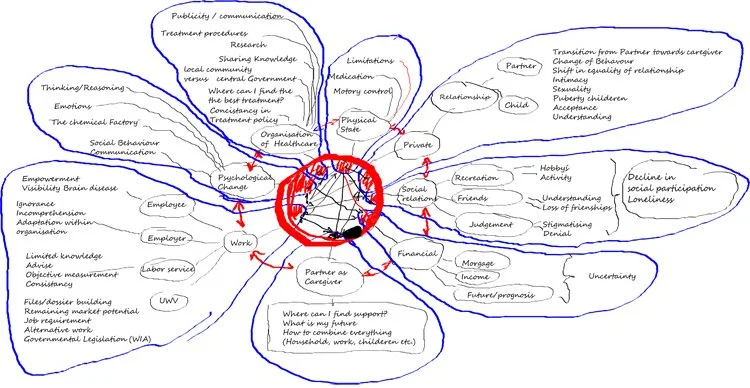Treat What Really Matters To Persons With Parkinson’s Disease Diagnosed At A Young Age
Living with Young Onset Parkinson’s Disease (YOPD) comes with challenges that one cannot imagine. The professionals treating persons with Parkinson’s disease (PwP) at a young age should try to get a feeling of what it is to live PD at this young age. In the Netherlands the change in care for this specific group of PwP starts with the experience of each individual patient.
‘Being diagnosed with a non-curable chronic disease at the age of 41 turns your world upside down. The diagnosis of YOPD disrupted my family and social life. All the things we took for granted became questionable: ‘will I be able to see my daughter through college?’, ‘what is the impact on her life?’, ‘will our marriage last?’, ' to what extent will my partner be able to care for me?' ' what about work and financial issues’? Searching for answers to these fundamental questions, my wife and I found little recognition and disbelief, even by close friends and relatives. In 2014 my neurologist and I teamed up for a fundraising cycling event. During this ride we talked about the impact of my disease on my personal life. This conversation inspired my wife and myself to make a mindmap of the areas of concern and how this impacts our lives.’
In the Netherlands this mindmap was the inspiration for a care model for EOPD patients and their context.
The mindmap shows the impact on functioning and participation while living with PD at a young age. It is so much more then bradykinesia, tremor, rigidity and dystonia. It is important that the professionals know how this disease impacts the lives of PwP and their context. With context we mean husband/wife/partner, kids, friends and colleagues.
In our clinic we reconstruct the personal mindmap of the PwP and their important people. From these different mindmaps we try to extract the most important questions the PwP and his/her context have. These questions are then translated to the right action.
In our care model we have realized specialty outpatient clinics for several specific problems. Outpatient clinic for dystonia together with rehabilitation medicine, Genetic counselling together with the geneticist, questions about pregnancy and hormonal changes influencing PWP are considered by a dedicated gynecologist, and work-related questions are also separately addressed. Sometimes the questions are not primarily a focus for the doctors so when that happens, the PwP are connected to social workers.
When the main strain is on the caregiver or the children it is important to find a way out of this stress. Less stress in the system of a PwP will lead to better functioning and more participation in the society.
We call for a holistic approach to PwP at a young age. Our message to health professionals and other care providers is to be curious and to ask questions to find out what really matters to the PwP you are trying to help. Guide them by choosing the right thing to do, which doesn’t necessarily have to be a medication adjustment or a referral within the medical field.
Identify their priorities so you can treat what really matters to the PwP!
Bart Post, MD is a movement disorder neurologist working at Radboudumc, Nijmegen, in the Netherlands. He works with all patients, but has a focus on those living with Young Onset Parkinson’s Disease. He has attended previous World Parkinson Congresses and currently sits on the WPC 2026 Program Committee.
Xander van Ruissen is a person with Young Onset Parkinson’s Disease who lives in Wageningen, the Netherlands.
Ideas and opinions expressed in this post reflect that of the authors solely. They do not necessarily reflect the opinions or positions of the World Parkinson Coalition®
